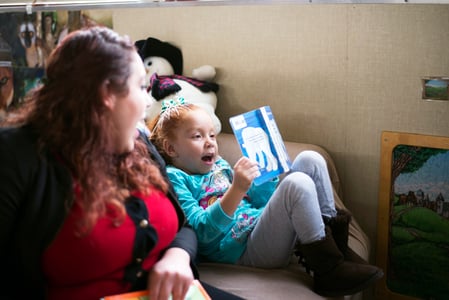
I have seen so many articles, pins on Pinterest, and Instagram posts with suggestions on must do behavior management strategies for the first month of school. Yes, behavior management is a key part of having a successful school year. But before we start focusing only on behavior management implementation, we need to talk about what is going to help you become a successful teacher in the classroom—developing authentic and genuine relationships with your students. Here are five things you can start with on day one to help build positive interactions.
Make home visits and/or phone calls
Before school begins, or during the first month, I highly suggest you make the time to either visit where your students live or make a home phone call to their parents/guardians. When I was teaching, I would carve out a week each summer before school began to go on home visits. I allowed myself 15 minutes per child and went to their home to meet their family and read a short book. I was not paid extra money to go on these home visits. However, I felt strongly about the power that they possessed and did them anyway.
Home visits create a groundwork for building a positive relationship with the family and with the student. You can learn a lot about a students’ home life in a short 15-minute visit. If home visits are not something you are able to do or are comfortable doing, I suggest making a phone call before school starts. You can introduce yourself and start off on a good foot with the parents.
Be authentic and genuine
This one may seem like a no brainer but I think educators can always use a reminder to build relationships with their students. Being authentic and genuine includes smiling, making eye contact, and having social conversations with students. Give your students time to talk to you. Teaching can be hard and overwhelming. Often, we’re so concerned about meeting standards and preparing for assessments that we forget this very important part of our job. We must make the time to be sensitive and aware of not only the academic needs of our students, but their emotional needs as well.
Play games, sing songs, and team build
Taking the time to build a classroom community is important. If you aren’t a singer, do other activities to build your classroom team. Here are some great examples of fun team building games you can play with your students. Ten years ago, the buzz phrase for educators was “creating lifelong learners.” Guess what promotes lifelong learners? Kids that love learning. Fostering an environment where your students feel safe to take risks and have fun promotes creative thinking. It also helps your students find the "joy" in learning.
Allow students ownership of the room
Carve out a chunk of your classroom and allow your students to decide how the space should be used. And leave plenty of room on your walls for student work. You can even let your students choose a classroom theme. When students feel like they are valued decision makers in the classroom they take pride in the space and are more conscientious of the room and of the materials they use. It creates an environment that says, “This is our class” versus, “This is my class.”
Develop classroom expectations together
This one fits right along with number four. It is about giving autonomy and ownership back to your students. Eliciting their ideas and views about appropriate classroom expectations gives the students more buy-in to how the classroom should run. Of course, there may be some expectations that you as a teacher or as a school already have in place and that are non-negotiable. That’s fine. But make sure you're asking your students what they see as valuable and reasonable expectations in the classroom.
If behavior management is the backbone of your classroom, then relationships are the heart. While it can be tempting to focus all of your energy on behavior management, forming genuine and authentic relationships with your students is just as important, especially at the beginning of the school year. You can't have one without the other.
 Colleen Schmit is a bilingual program evaluator at Munroe-Meyer Institute through the University of Nebraska Medical Center. She loves providing professional development opportunities that help teachers reflect on their teaching practices, recharge their batteries, and rekindle their joy for teaching. She enjoys spreading the message of the CLASS tool as a Pre-K affiliate CLASS trainer with Teachstone.
Colleen Schmit is a bilingual program evaluator at Munroe-Meyer Institute through the University of Nebraska Medical Center. She loves providing professional development opportunities that help teachers reflect on their teaching practices, recharge their batteries, and rekindle their joy for teaching. She enjoys spreading the message of the CLASS tool as a Pre-K affiliate CLASS trainer with Teachstone.
This post originally appeared on Criss Cross Applesauce.

